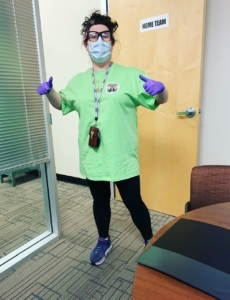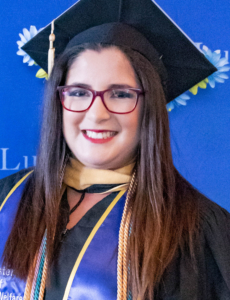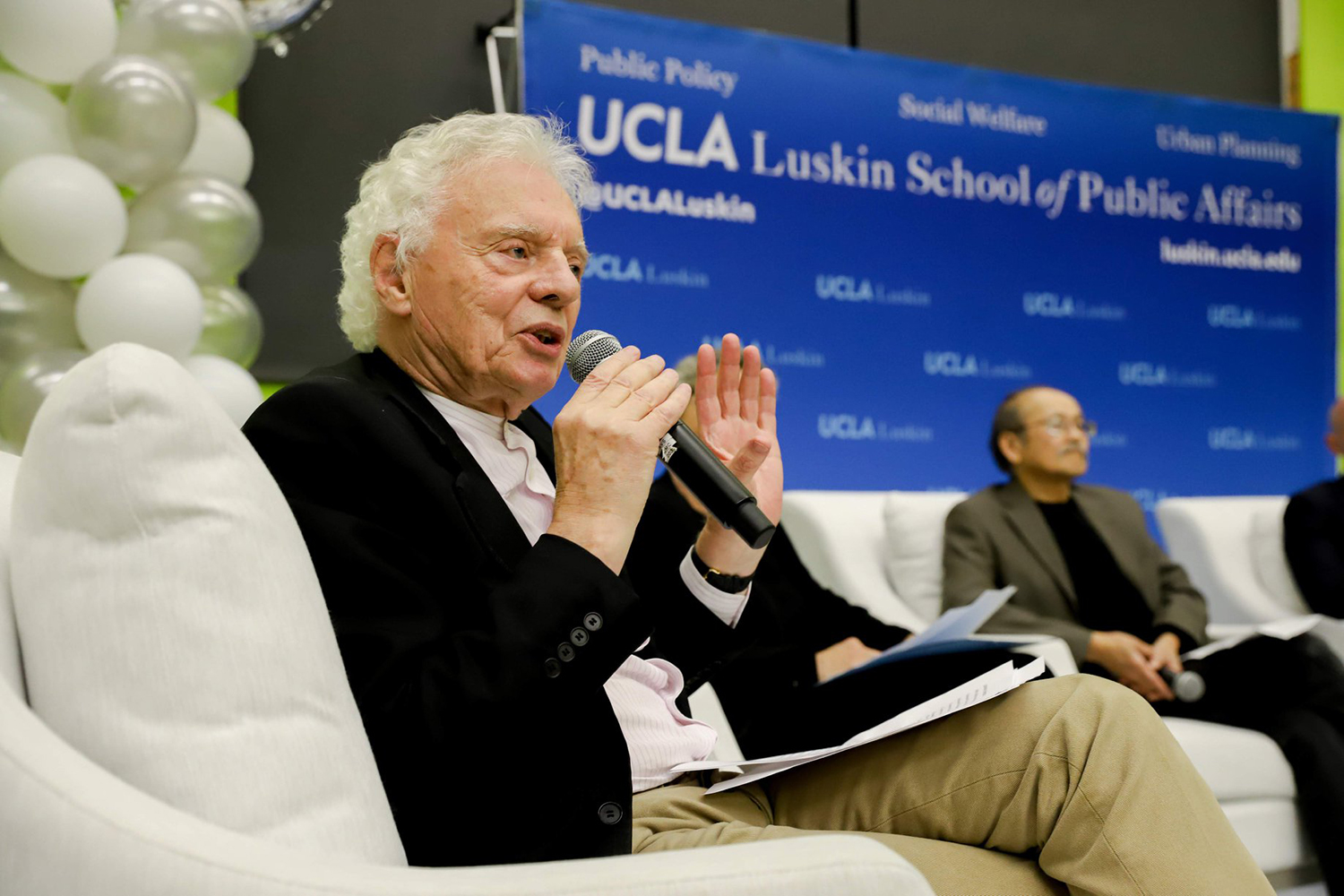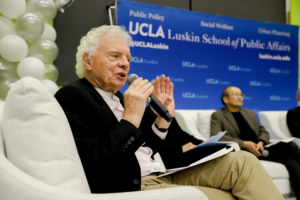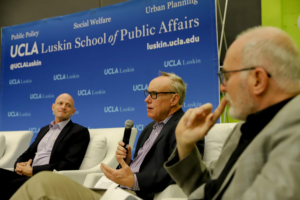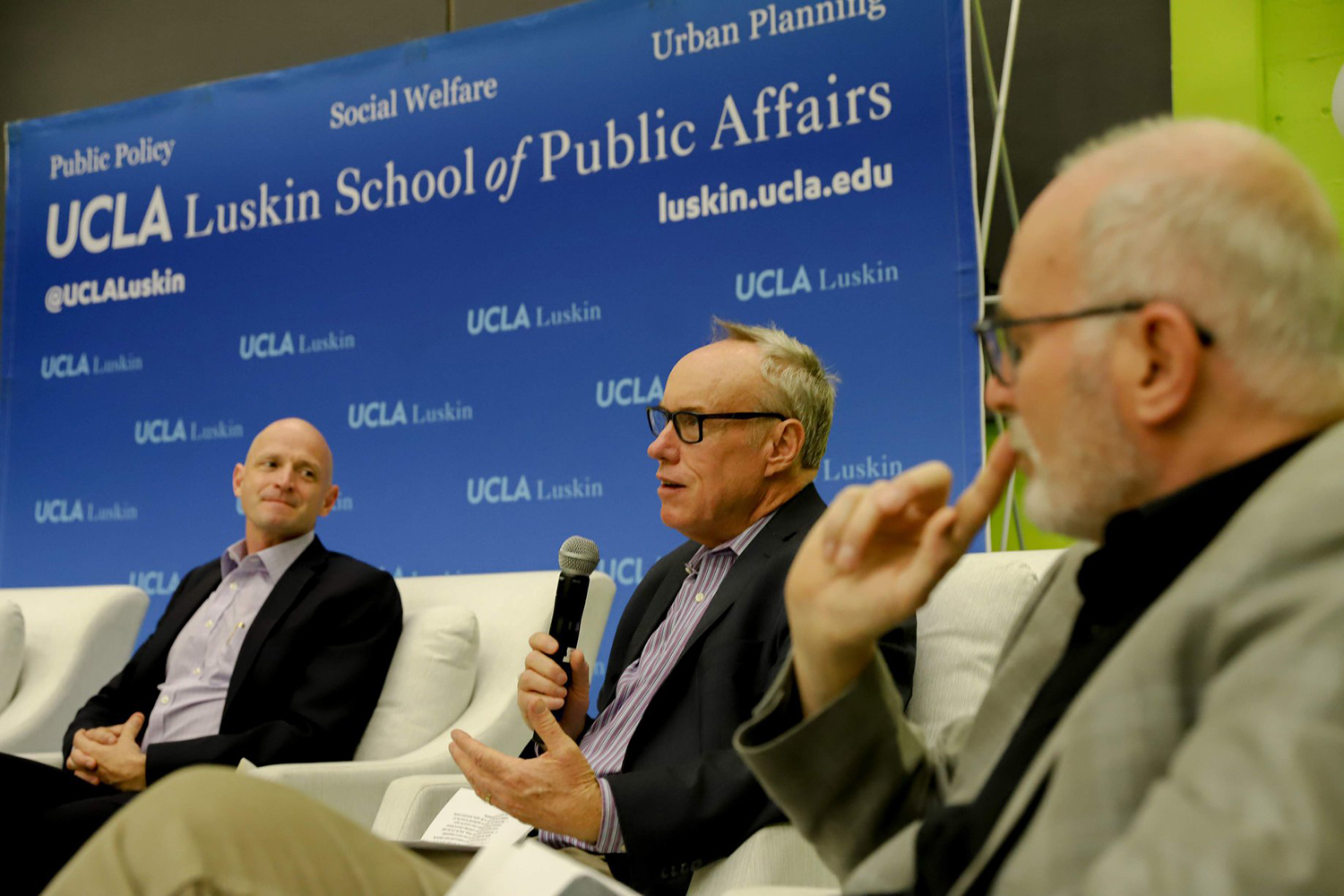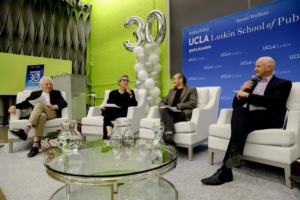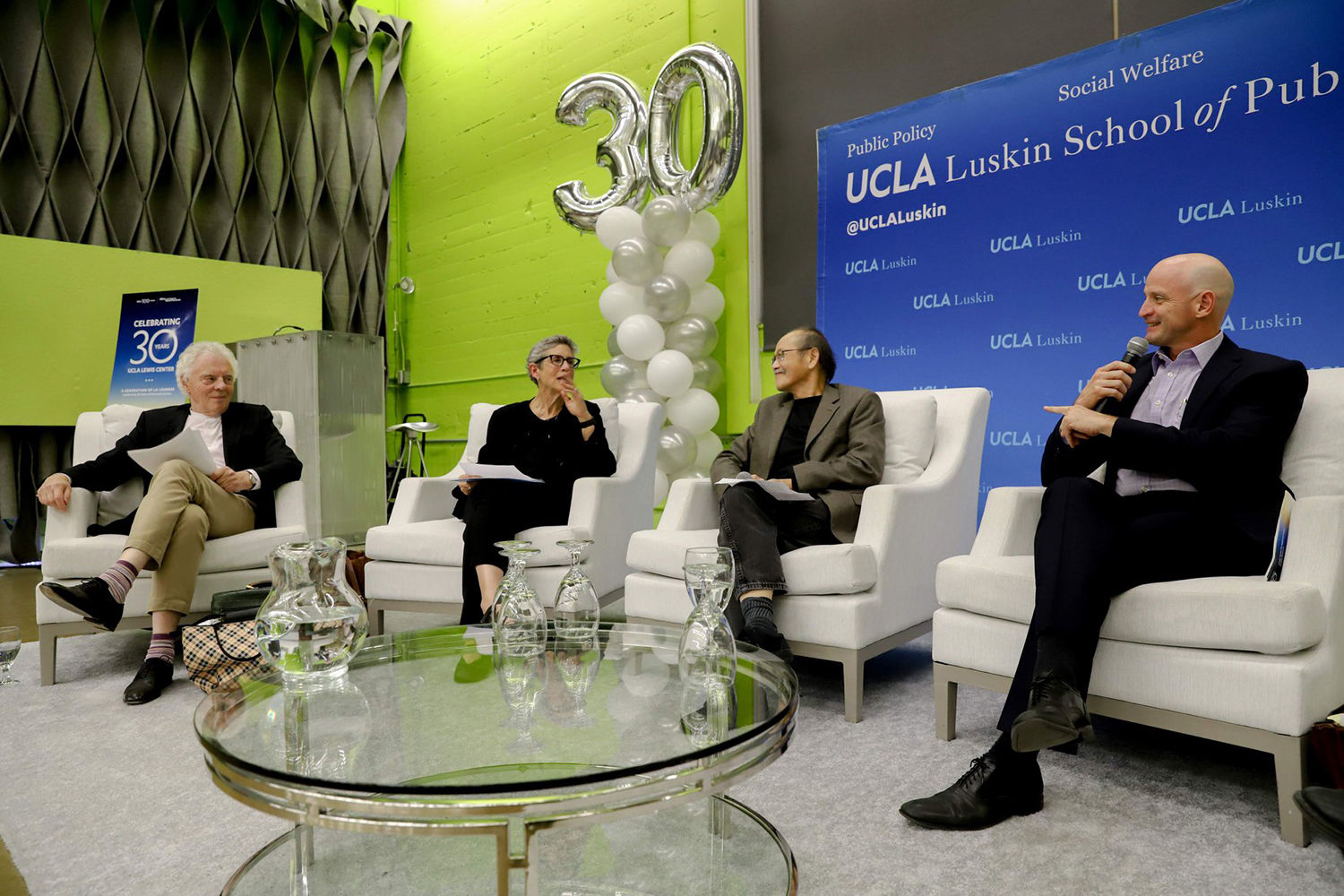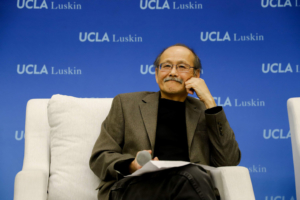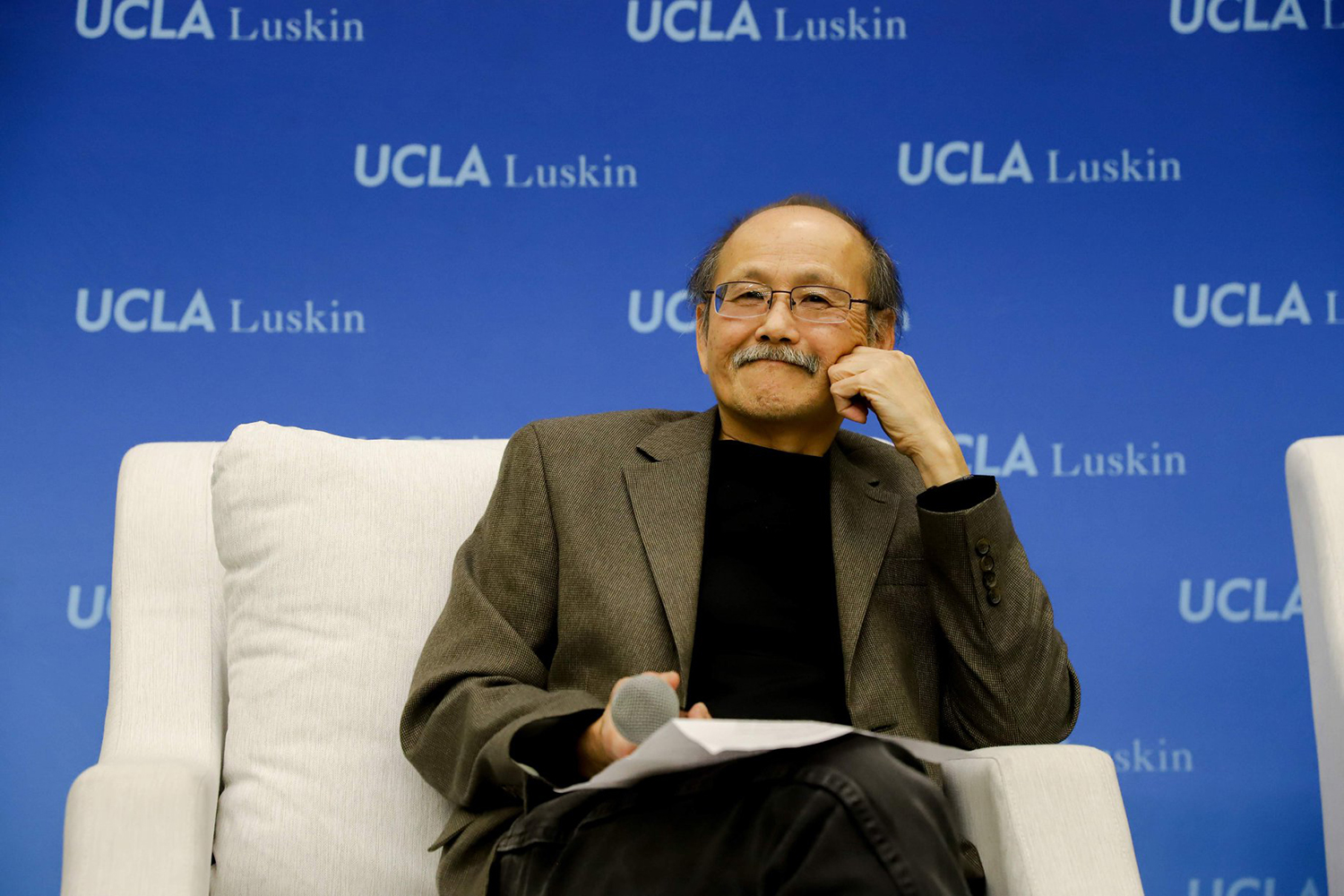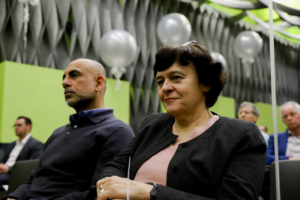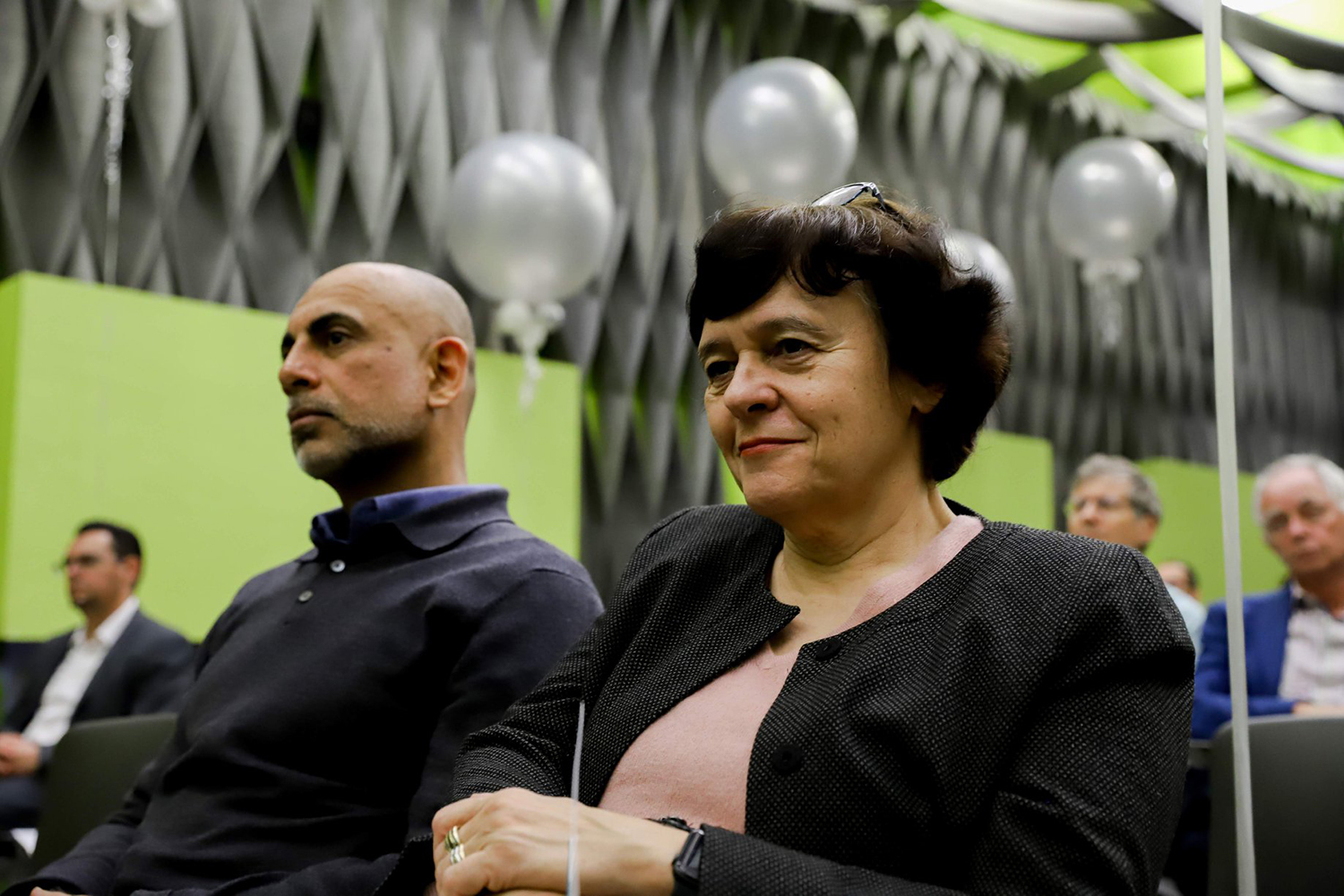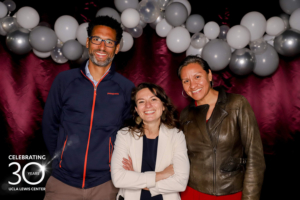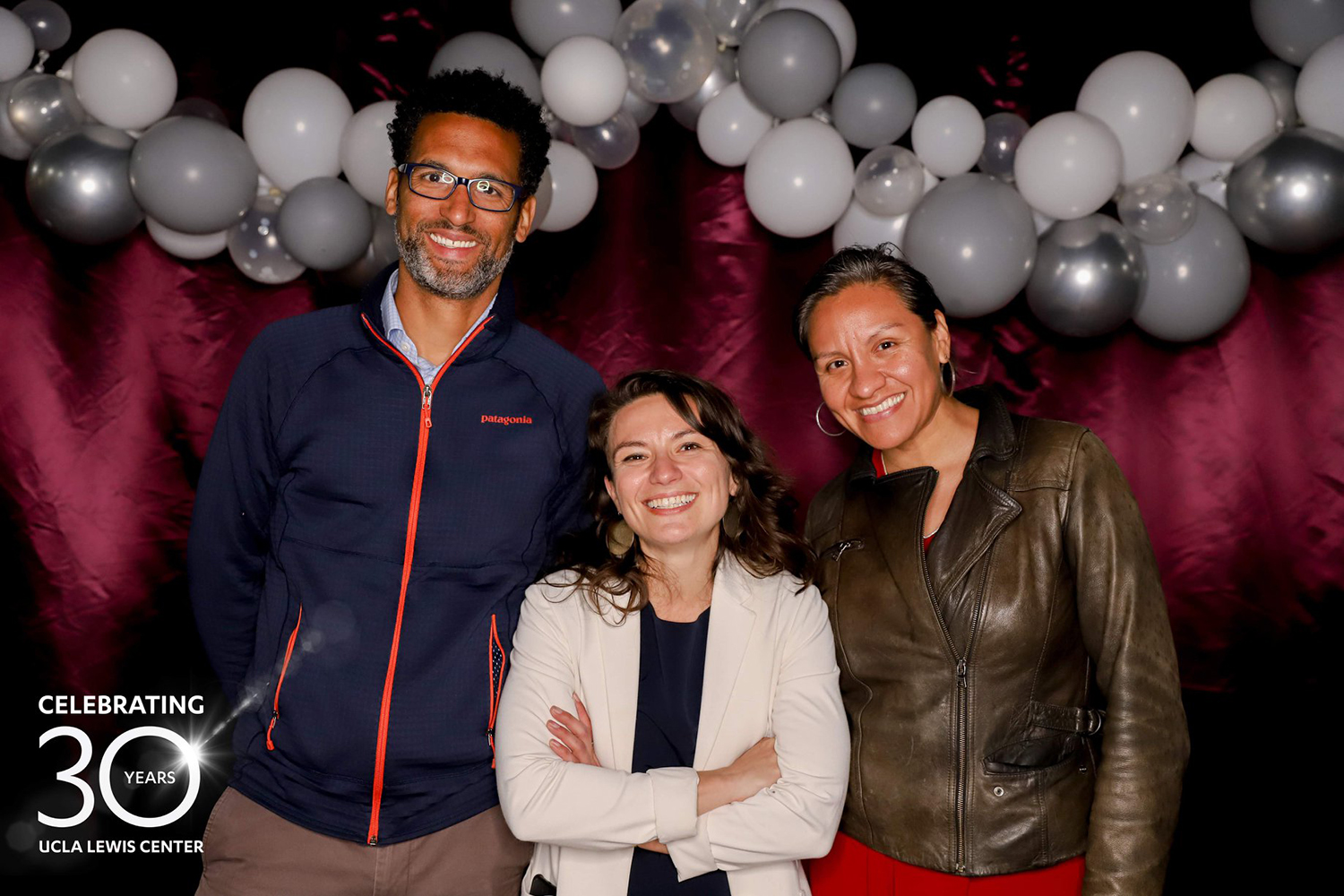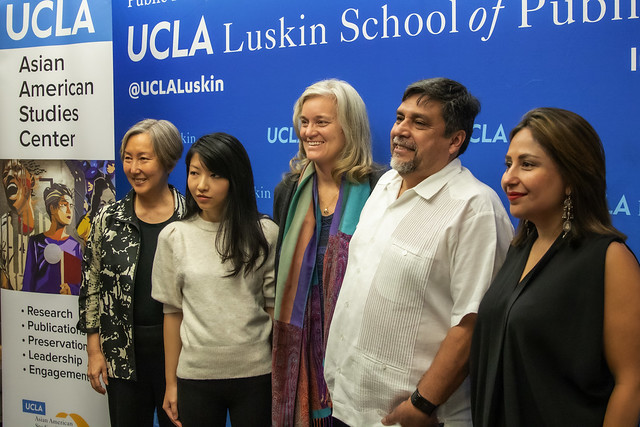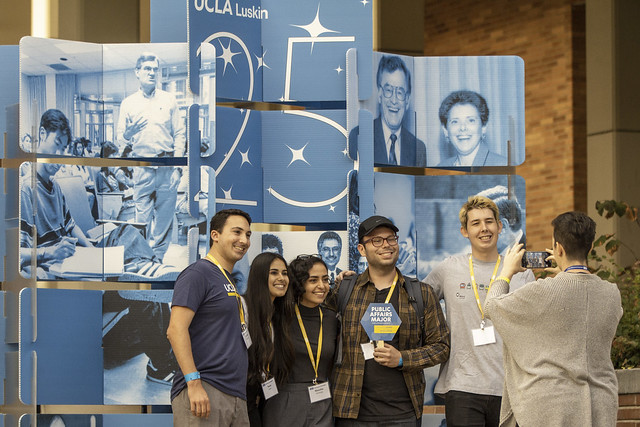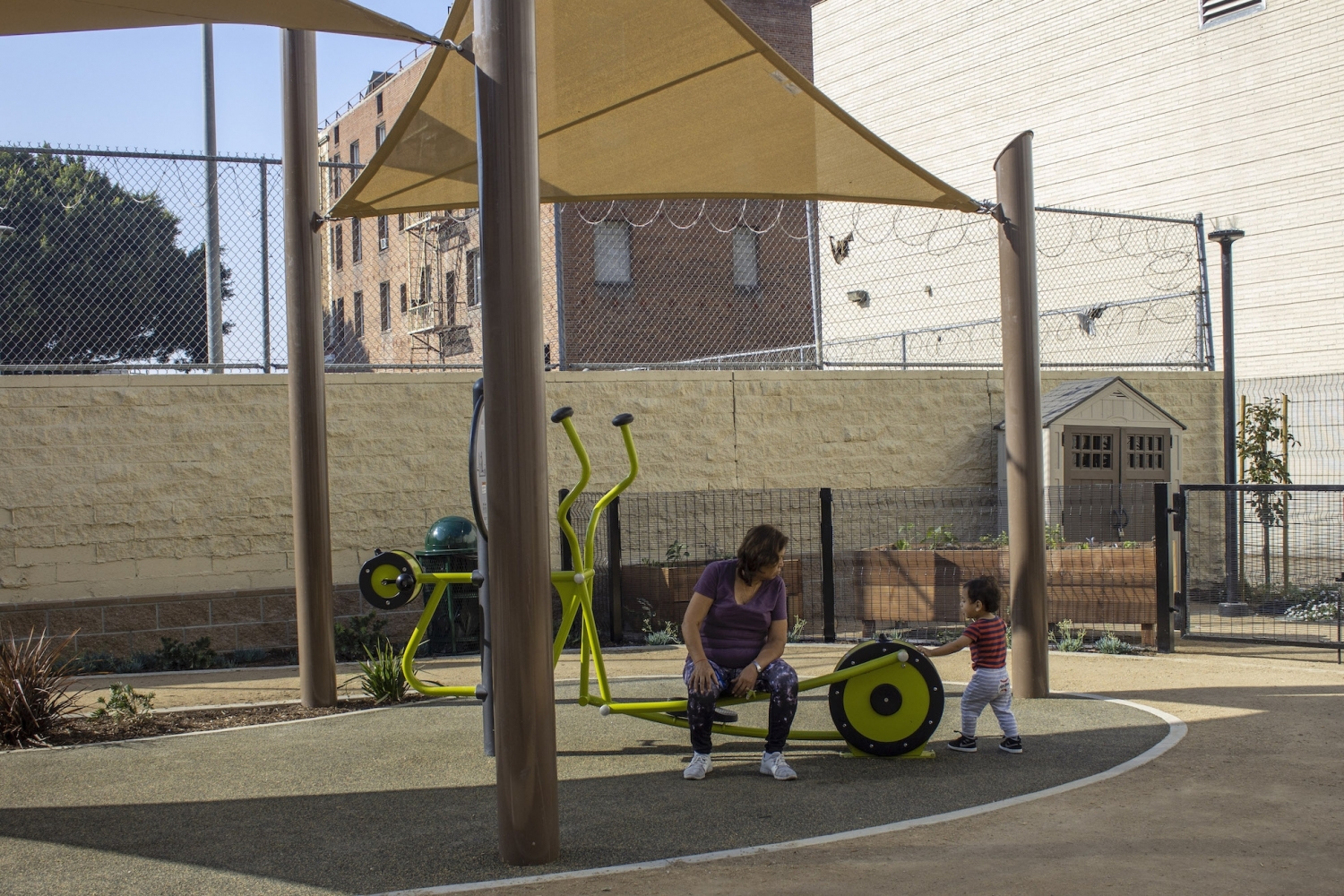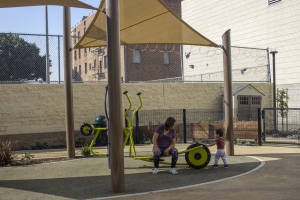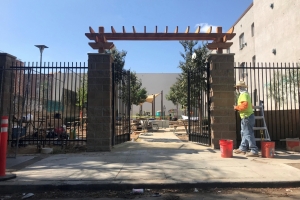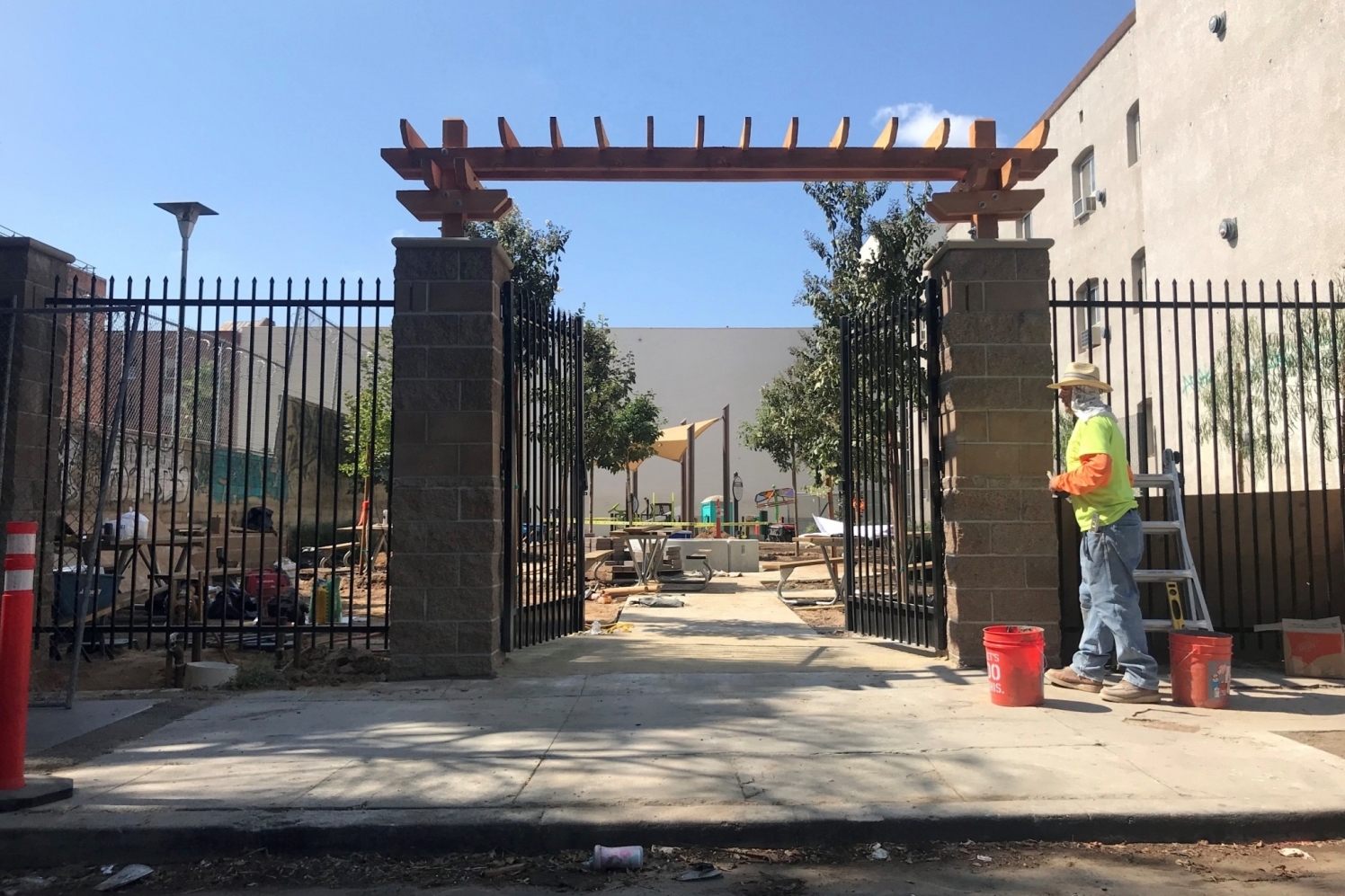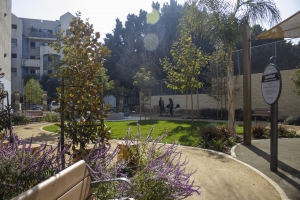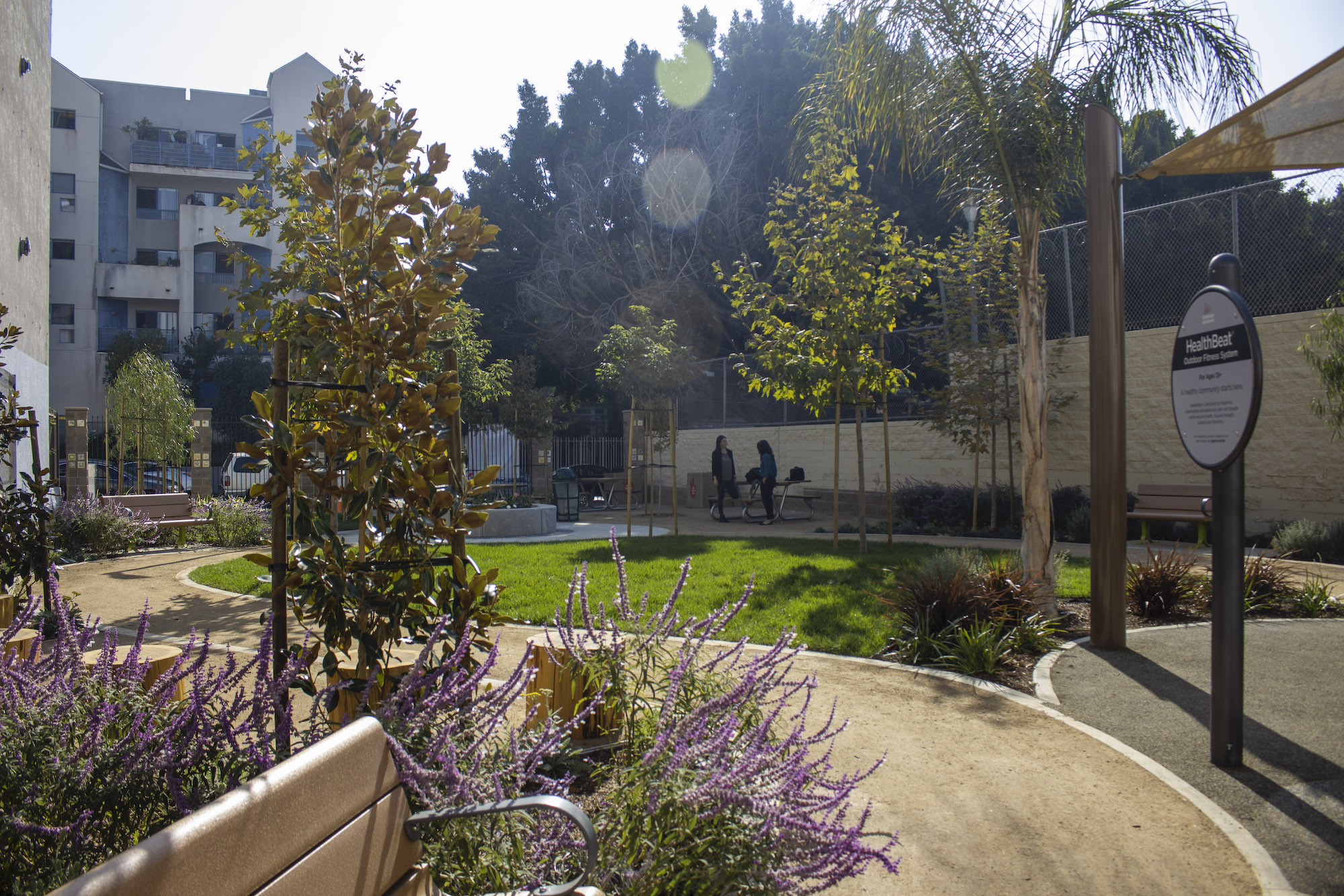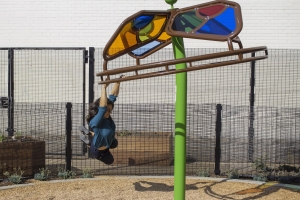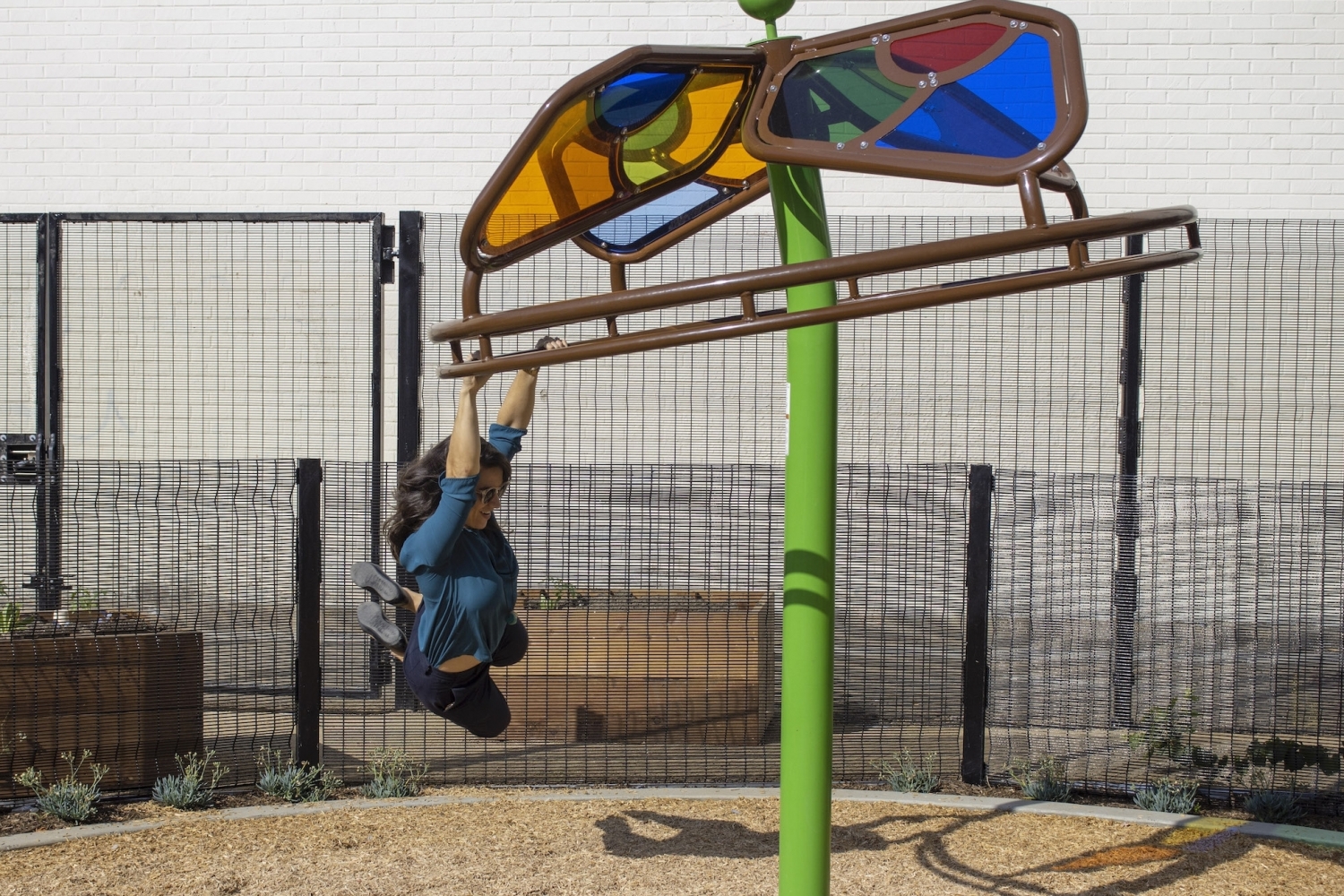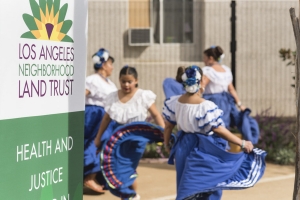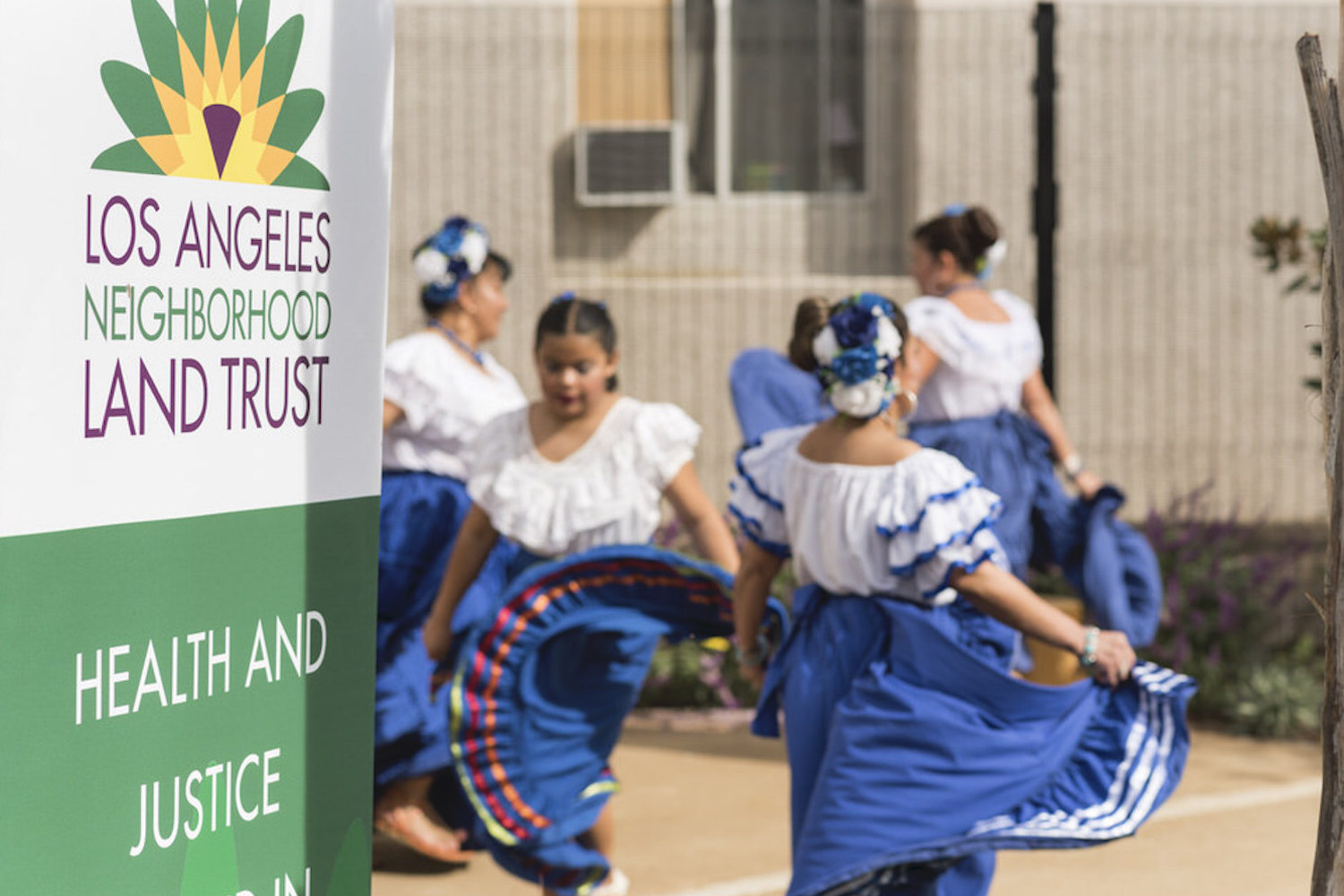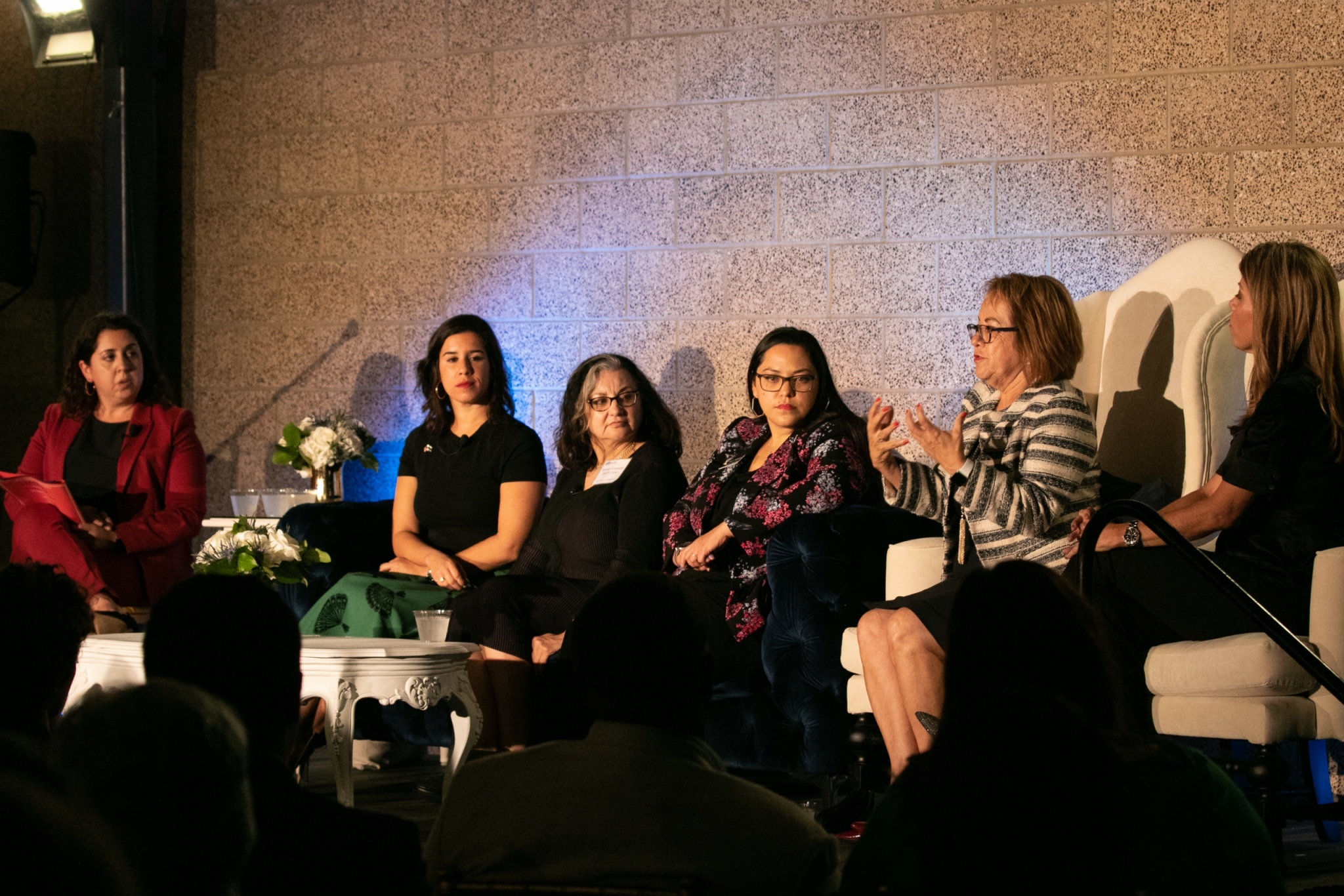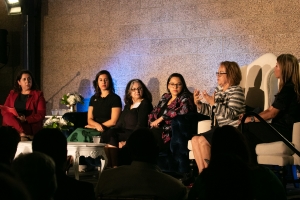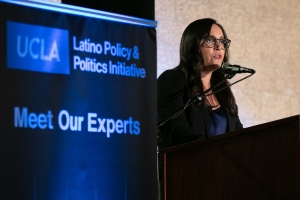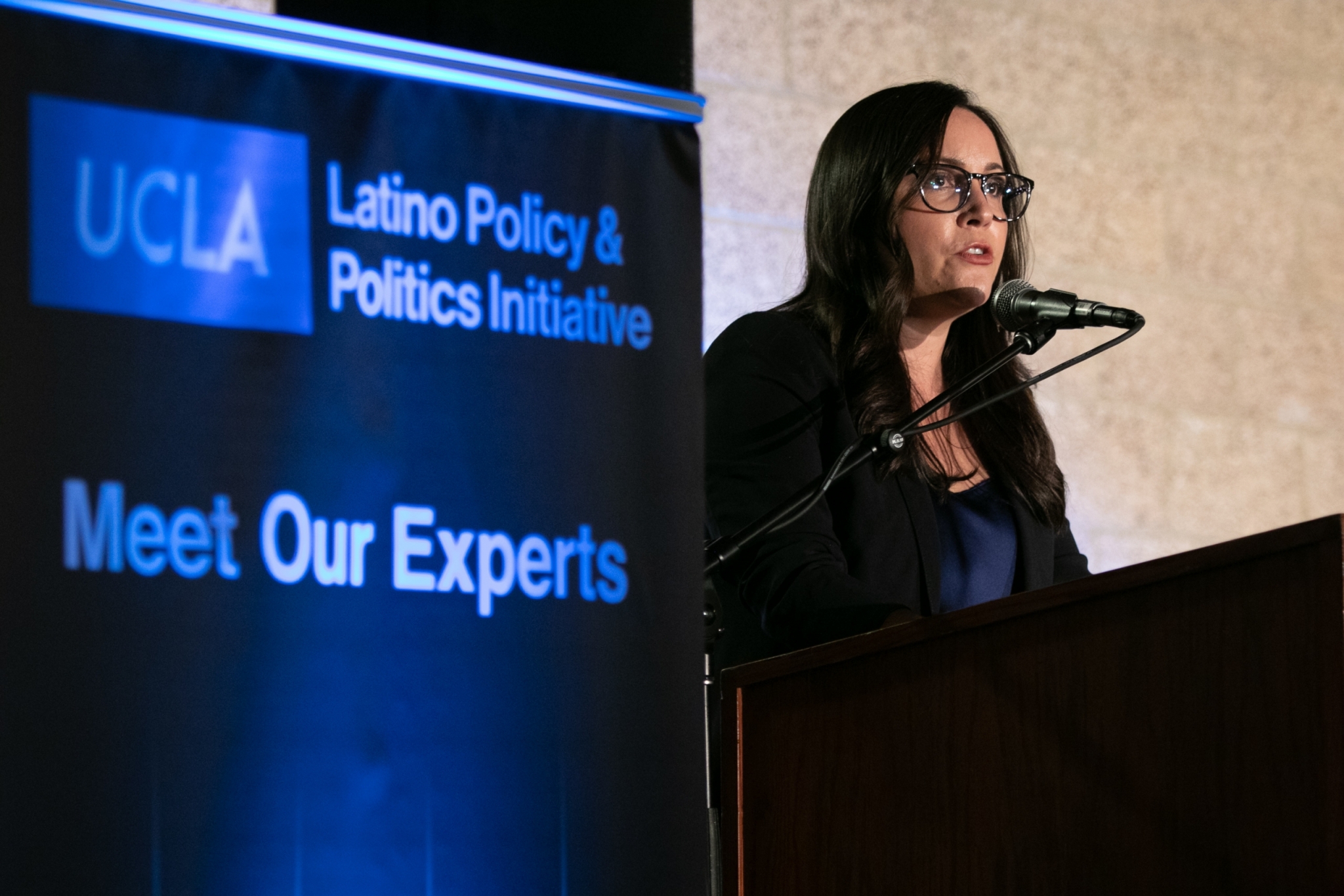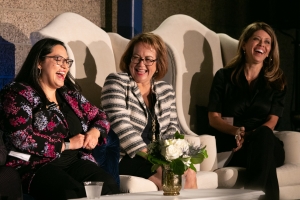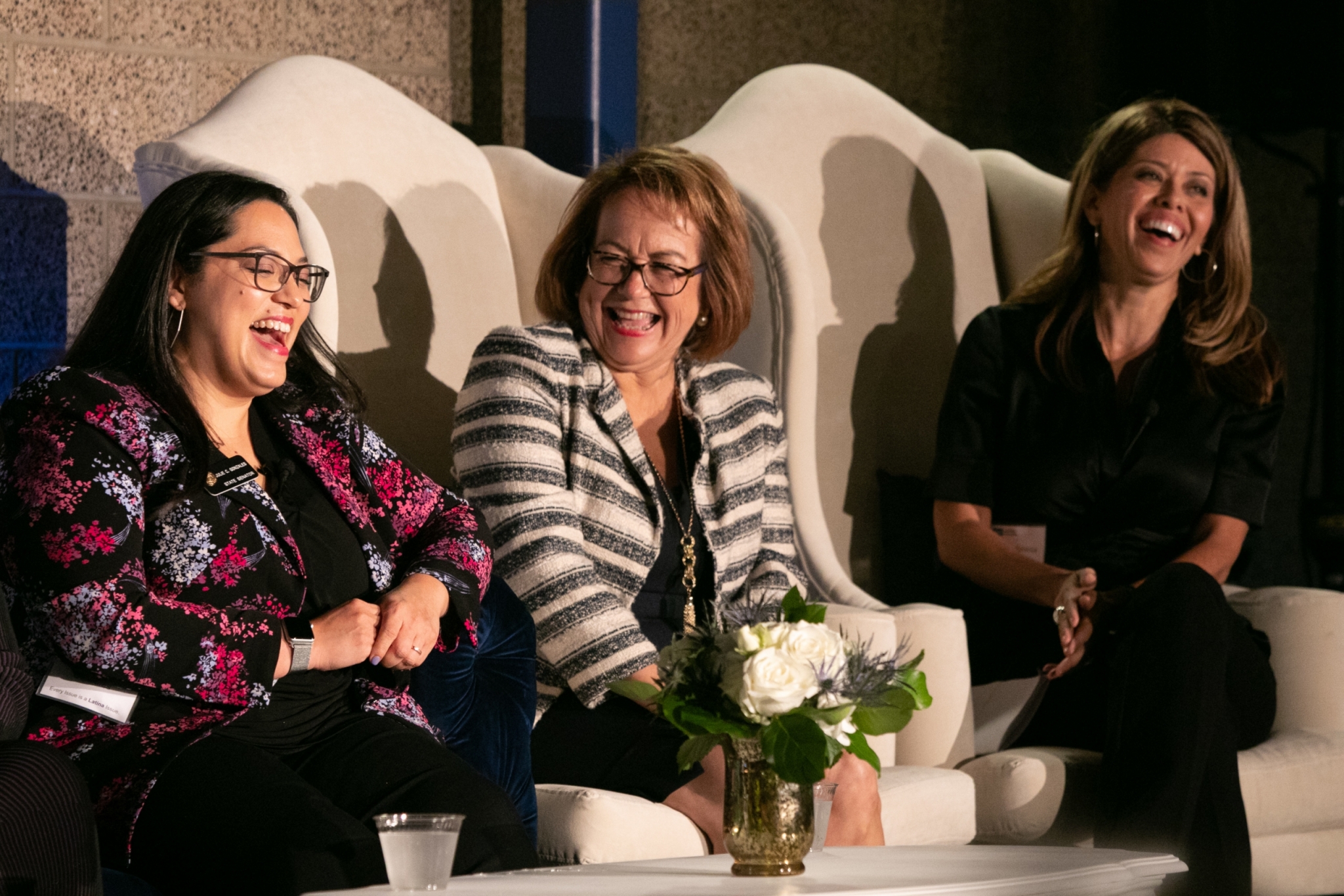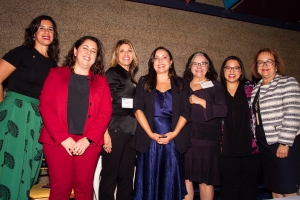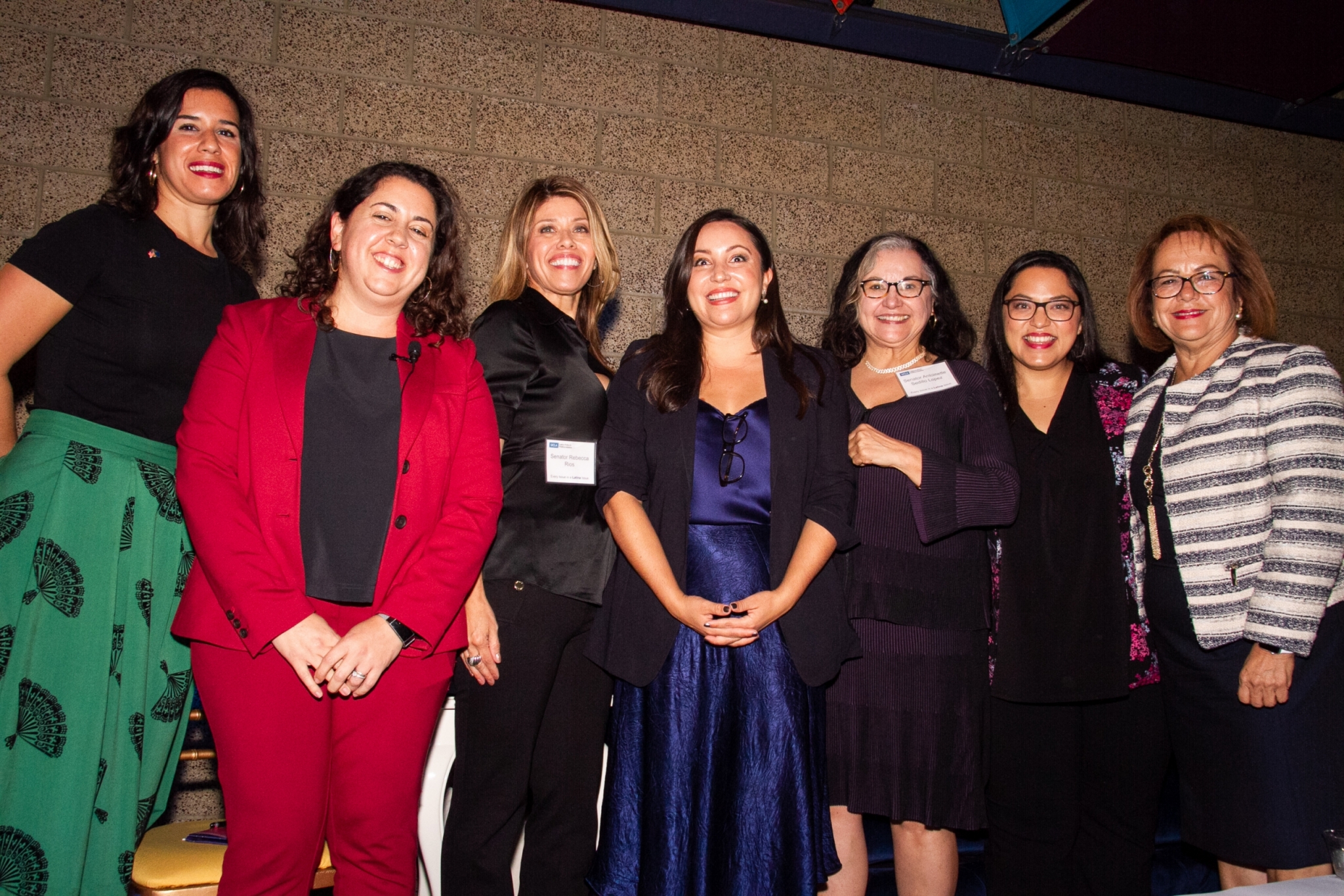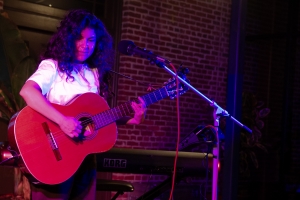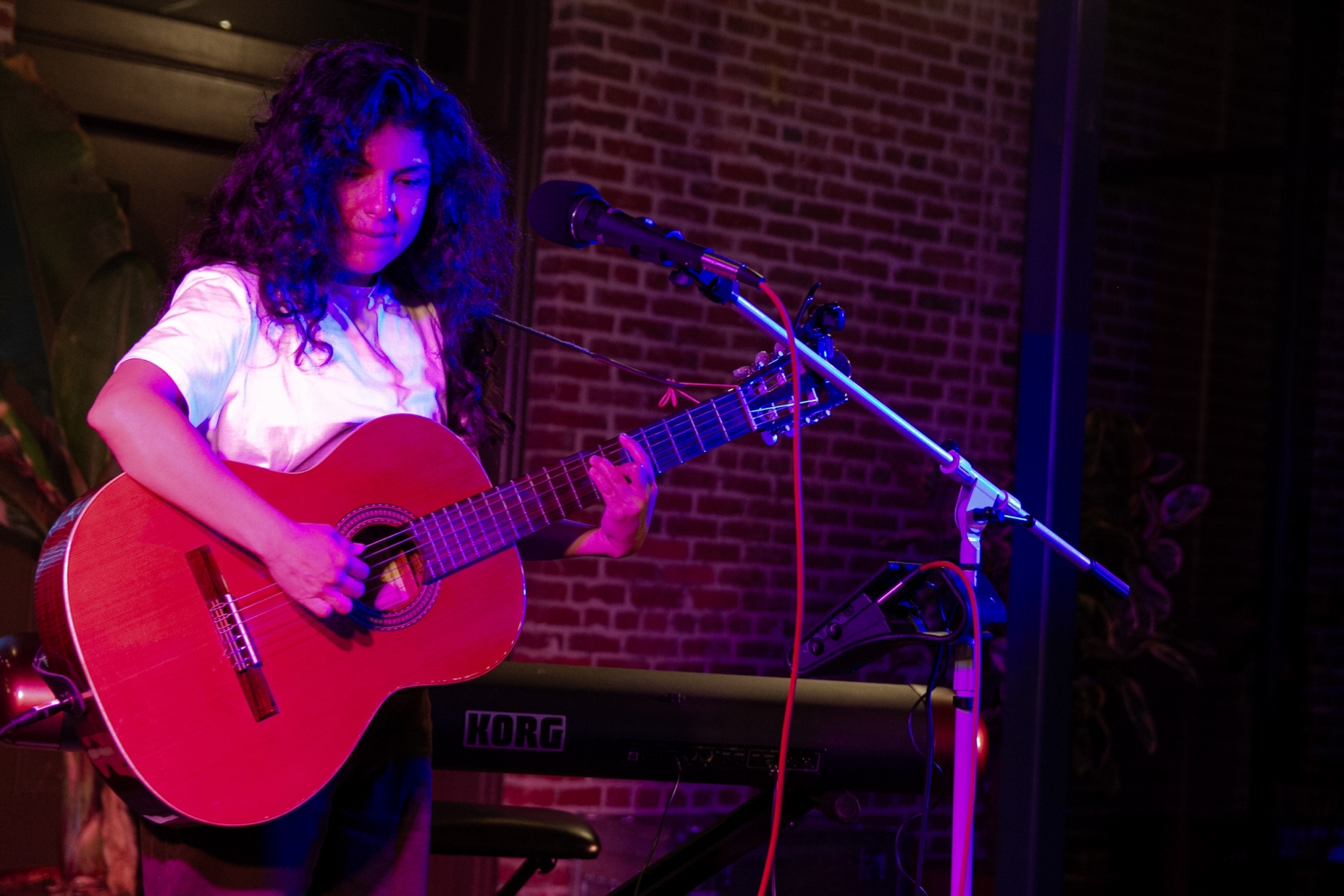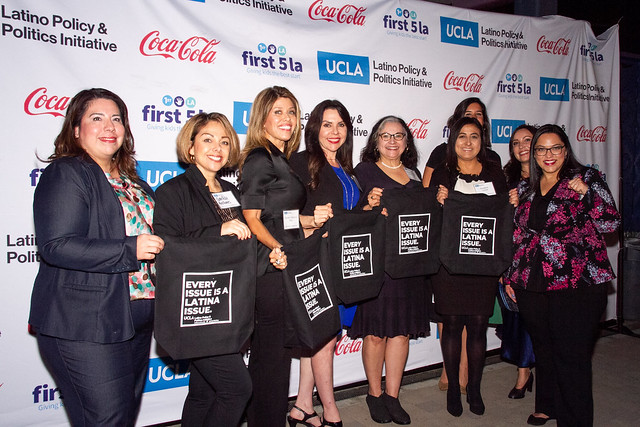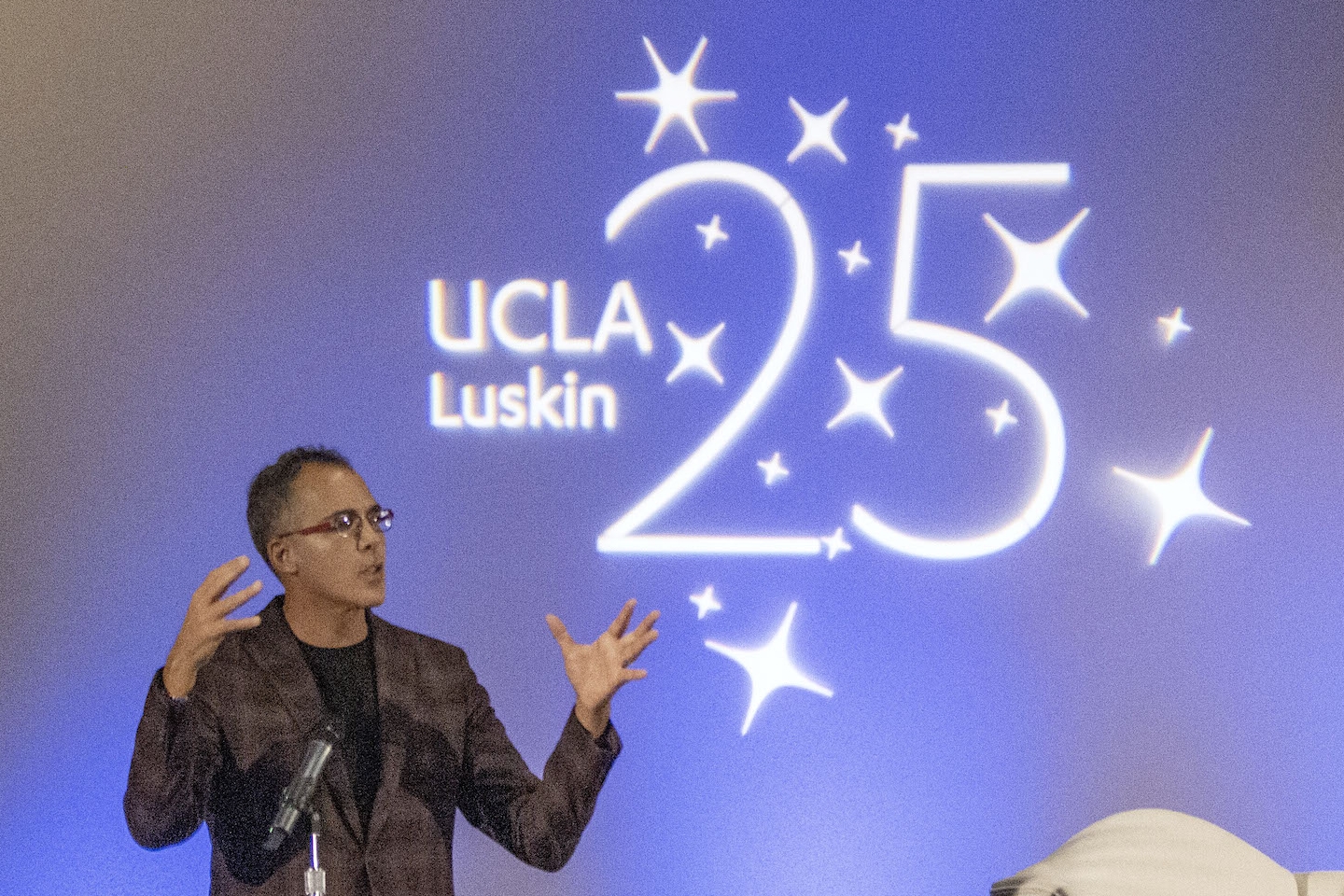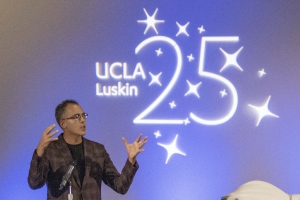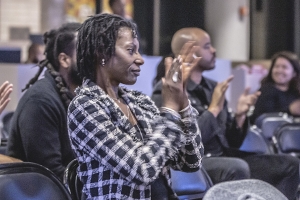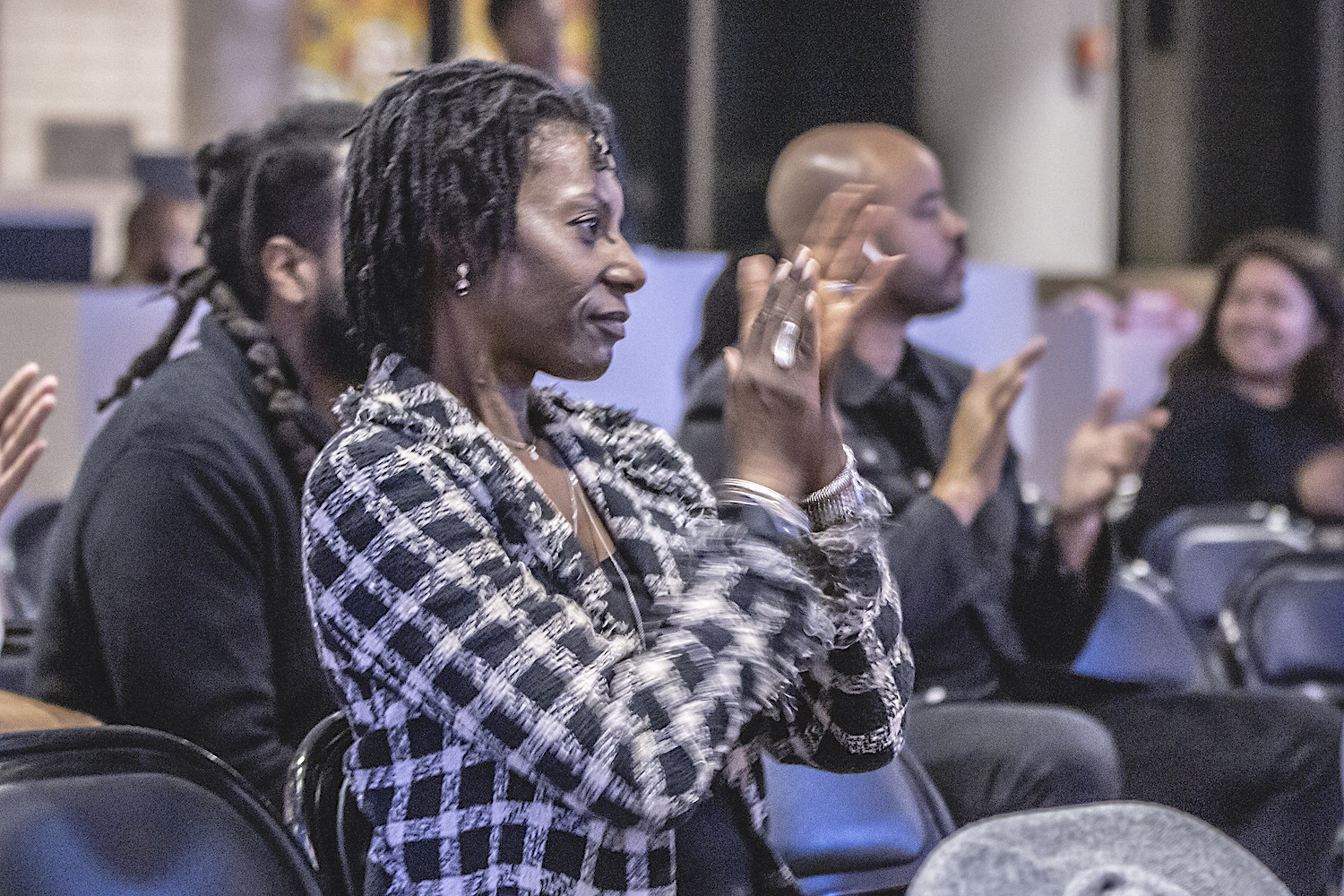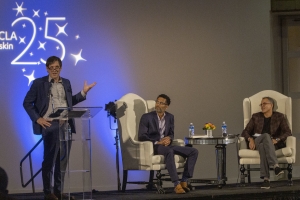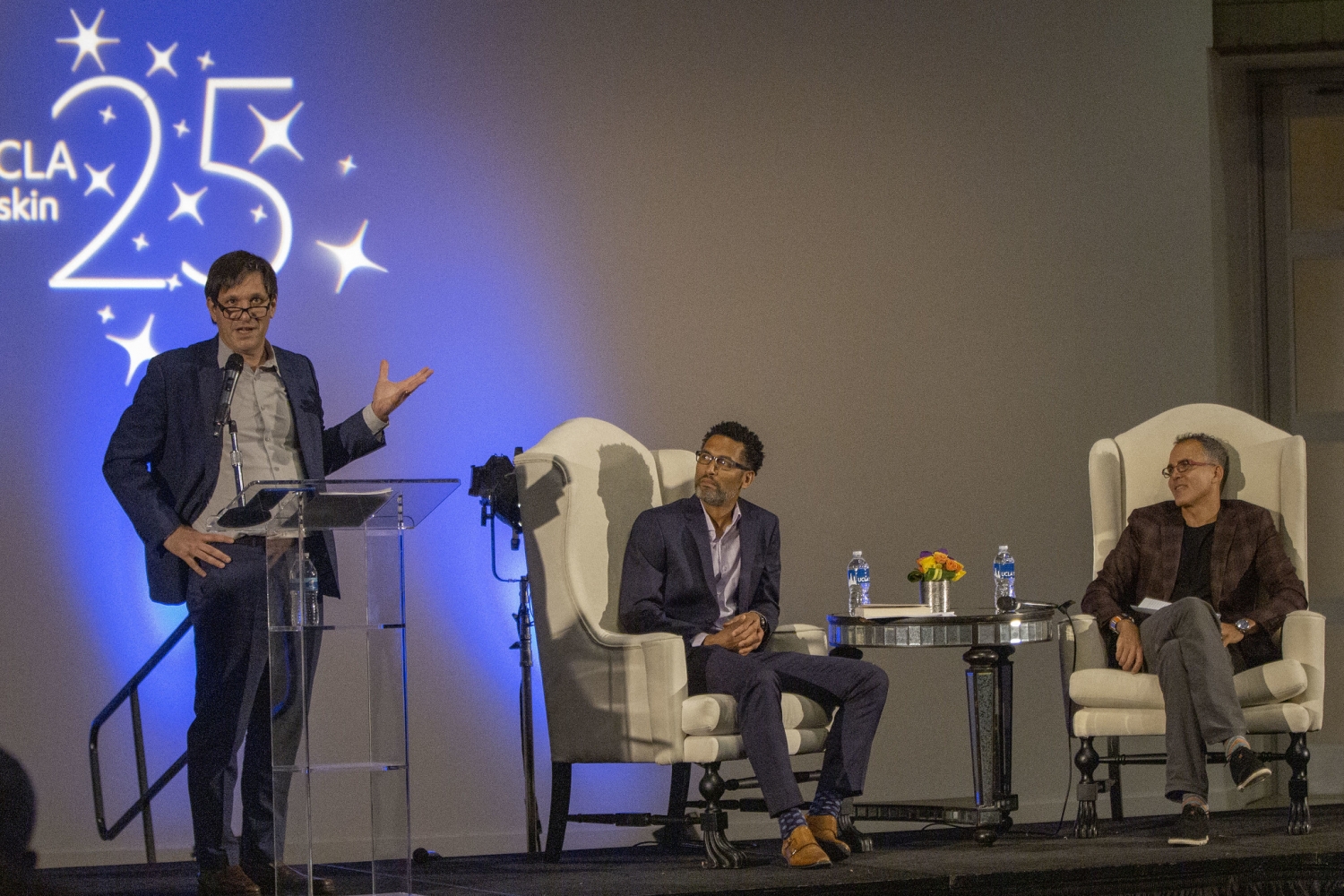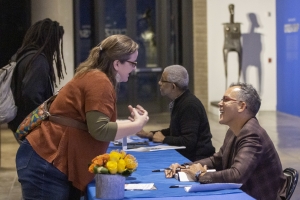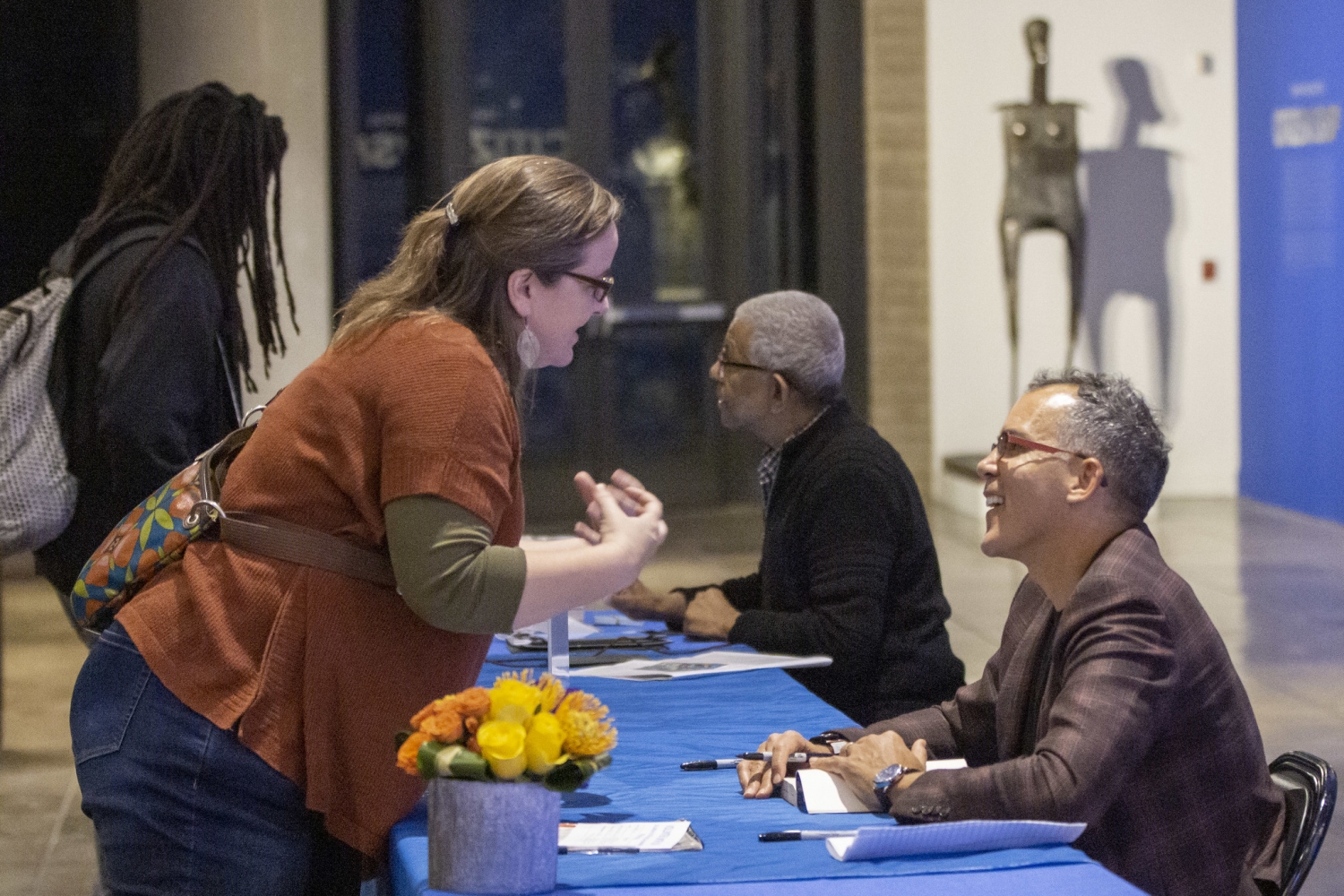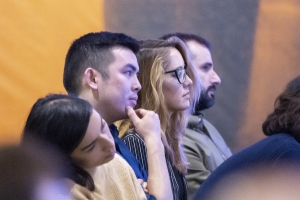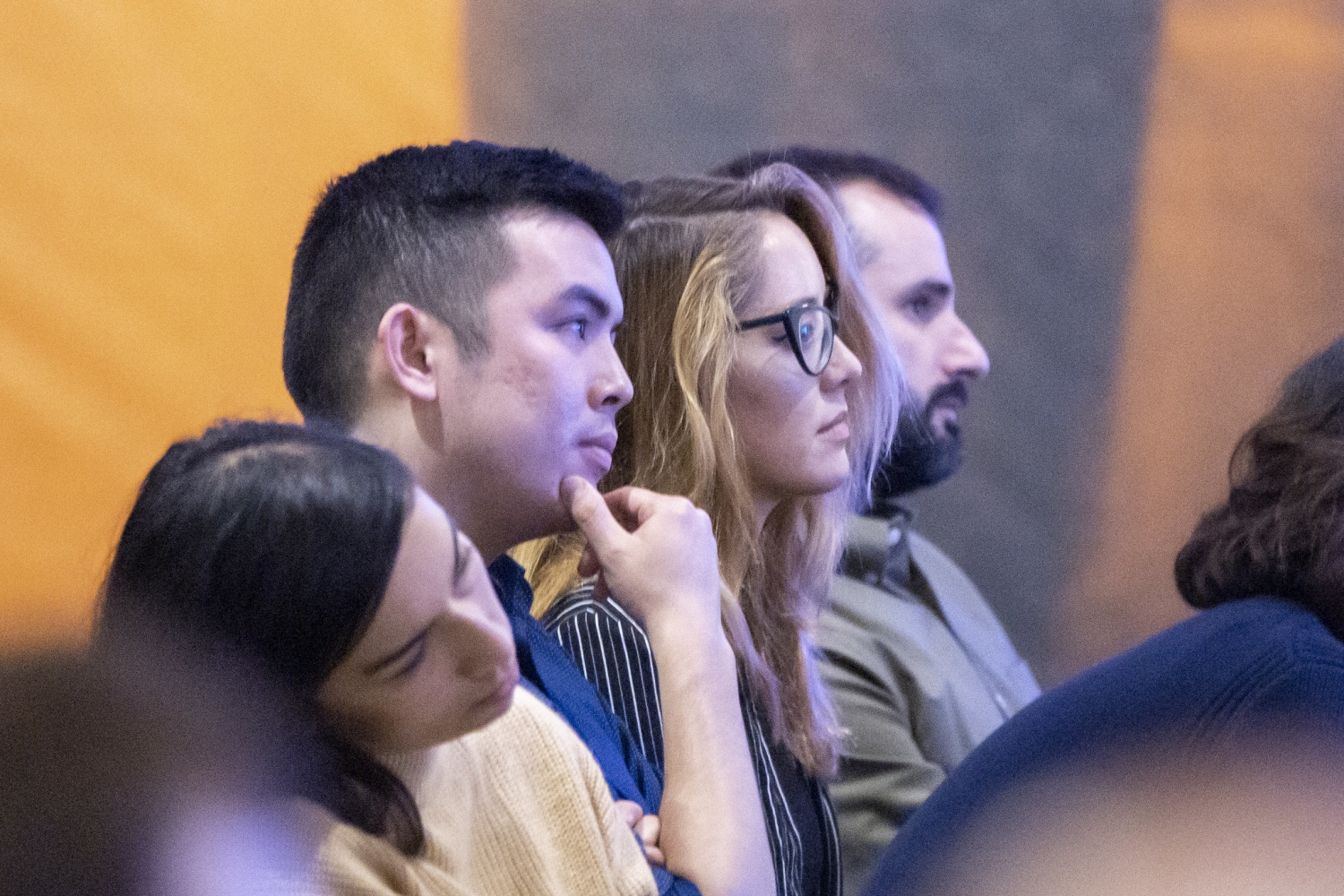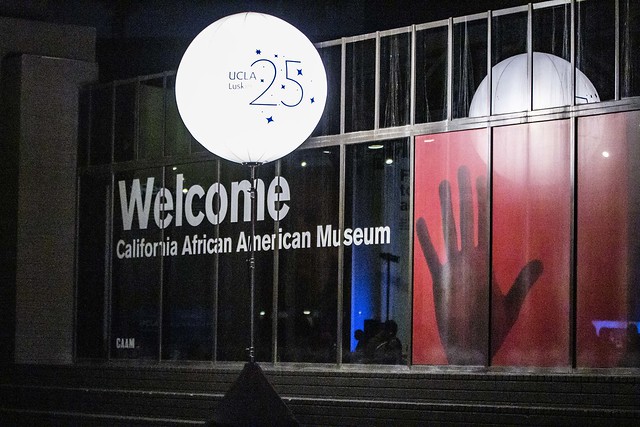Perseverance Amid the Pandemic UCLA Luskin alumni social workers reveal some fear and frustration and a whole lot of dedication
By Les Dunseith
Social workers. They are still out there.
They still walk Skid Row despite the COVID-19 pandemic. They still go to homes where children are in need. They still report to work at hospitals where patients die alone and families need to be located and told. It’s their job — their essential job — and they’re still doing it despite extraordinary circumstances that are making already difficult roles even more challenging.
“On a personal level, these social workers are making sacrifices of their own health, and potentially the health of their families, in order to continue to serve,” said Laura Abrams, professor of social welfare. “They know that they’re taking that risk, but they feel like it’s important to them. It’s their responsibility.”
Founded in 1947, the UCLA program is widely known and highly respected, particularly in California, where most of the 90 to 100 graduates each year go to work for city, county or state social services agencies.
Abrams, who is chair of social welfare at the UCLA Luskin School of Public Affairs, knows this because she’s been talking to some of them, connecting with alumni of her program for Zoom calls to find out how they are doing.
What is it like for social workers right now?
Lavit Maas, who graduated in 2010 with her master’s in social welfare, works for the Los Angeles County Department of Mental Health’s Homeless Outreach and Mobility Engagement team, which provides care on Skid Row in downtown Los Angeles for homeless people with severe mental illness. Maas works with people who are among the most vulnerable to COVID-19.
“There’s a lot of elderly on Skid Row,” she told Abrams. “There’s a lot of people with medical conditions. It’s terrifying because we don’t know what to do [for them]. It makes me sad.”
Gabby Peraza, a 2019 master’s in social welfare graduate, works with foster youth as part of her job with the county department of children and family services. Soon after the safer at home order was issued, she encountered a young girl who needed to be transferred to a new placement but was frightened by Peraza’s protective gear. The child cowered in fear, hiding behind a foster parent.
“I had to make the decision. I’m either going to have a kid crying with me — and forcing that kid into a car with me,” Peraza recalled. “I said, ‘All right, I’m going to take this mask off, take these gloves off, and just engage with this kid.’ ”
Abrams has been recording her video interviews, and they are being edited for privacy and clarity before being posted for educational purposes on a showcase page maintained by the Luskin School. [Or scroll to the bottom to view.] So far, eight interviews have been completed and three have been posted publicly. In all, Abrams expects to do at least eight, with interviewees who reflect the broad swath of roles in which social workers are employed.
The idea came to Abrams soon after she and her family moved inside to comply with the social distancing order that was issued March 19 in Los Angeles County.
“I felt very disconnected from what was happening out in the real world,” Abrams said.
A conversation about the impact that the coronavirus pandemic was having on a close friend in a medical career led Abrams to realize that few people were thinking about her former and current students in UCLA’s social welfare program. She knew they were being affected too, but how? So she reached out on Facebook to see if anyone wanted to talk.
“Social workers, they’re playing a vital role in this pandemic,” said Abrams, noting that they interact with people at the margins of society who are often overlooked by the general public and in media reports. “What’s happening out in the community, especially with really vulnerable populations like homeless folks or people in the jails or children in foster care?”
Abrams said she has learned a lot from the Zoom calls. For one thing, the feeling of personal safety varies from person to person and job to job. A social worker in a hospital, for example, said she had access to personal protective equipment and felt safe. But those who work for government agencies, however, said they were fearful about their level of protection from the novel coronavirus.
Many social workers said they are facing unexpected dilemmas, and “working in spaces in which their clients are not getting what they need,” Abrams said. For example, an alumna who works in a correctional facility observed that people being imprisoned there were not given proper access to soap and water so they could comply with orders to frequently wash their hands.
A surprise from her interviews was discovering that some facilities and social services are actually being underutilized at the moment. The number of cases being handled is less than usual for Peraza and for Madison Hayes, another 2019 master’s in social welfare graduate, who works in Sacramento at a shelter for foster youth. For both, the decline in cases mirrors a steep drop-off in calls to crisis hotlines and a lack of referrals from the mandatory reporters at public schools.
“We know that things like abuse and other family problems are probably increasing, but calls … are decreasing so dramatically,” Abrams said. “Child protection is basically falling apart because there’s no window to the outside world.”
Talking to social workers in the field has also reminded Abrams of the inequities that always exist in society.
“Access to health care: What does that mean?” Abrams asked. “Access to even having a home, to being sheltered? I am seeing the racial disparities and seeing the ways that the haves and the have-nots have different levels of access at this time.”
The interviews have also reminded Abrams of one other important — and more hopeful — aspect of society. People keep doing their jobs despite the risks involved.
“We all knew coming into this career that there’s always going to be a risk,” Peraza told Abrams about what it’s like to be a social worker during this crisis. “We just didn’t think it was going to be this type of risk.”
Peraza said it’s not about herself, it’s about the children and the families she serves.
Maas acknowledged the risks to her own health and the fear of getting infected and passing the virus along to a colleague or loved one. But there is work to be done.
“I love being a social worker and, to me, service is the only thing that matters,” Maas said. “Of course, you can’t be of service if you can’t protect yourself. I know that. But, especially in a time like this, I have to be of service.
